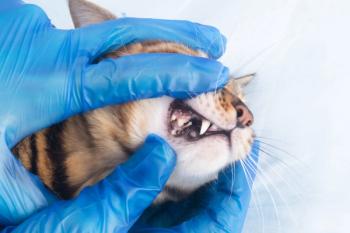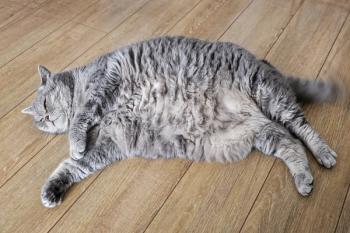
What should veterinary clients do with all those sharps?
Help your clients keep out of a sticky situation when they have a pet that needs injections by advising them of proper disposal technique.
Volodymyr - stock.adobe.com
It sounds like a simple question from a client: “What do I do with the needles I use for my diabetic kitty after I use them?” There should be a simple answer.
Not so fast. The answer, as in so many things in life, is “it depends.” In large part, it depends on which state you live in, but in some cases the county within the state makes the rules. You, as a veterinarian, know that the rules for disposal for you are quite different than those for clients and their pets.
In general, the best recommendation is to use an FDA-approved sharps disposal container. They come in various sizes, including a small travel size. If an FDA-cleared container is not available, you can tell clients to place used sharps in a strong, opaque plastic container, like a laundry detergent or bleach bottle. The container should be leak-resistant, remain upright during use and have a tight-fitting, puncture-resistant lid. When the container is about 3/4 full, clients should seal it with duct tape and mark it with big, waterproof letters: “DO NOT RECYCLE.”
The difficult part is where the container goes from there. This is where community guidelines arise. Oklahoma, Colorado, Illinois, Minnesota, North Carolina and more offer similar guidance:
Put the plastic container in the household trash-don't recycle! If a trash collector is reluctant to collect a red sharps container, refer them to your state waste agency. Sharps should never be thrown loosely into the trash or toilet.
It gets trickier in states like Oregon and California. In Oregon,
For more guidance specific to your state, you can check out
Dr. Elizabeth Colleran is the owner and hospital director of two exclusively feline practices and is an American Board of Veterinary Practitioners diplomate in feline practice. She participated in the 2013 Bayer Veterinary Care and Usage Study 3–Feline Findings. Prior to veterinary school, she worked in sales and marketing management for IBM where she worked with Fortune 500 companies to streamline internal networks. Her passions are her crazy husband, two equally crazy Burmese cats, bicycling and Indian cuisine.
Newsletter
From exam room tips to practice management insights, get trusted veterinary news delivered straight to your inbox—subscribe to dvm360.






